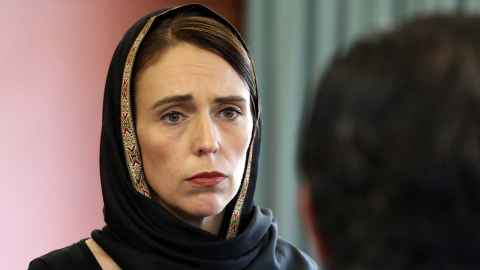Finlay Macdonald: The kindness of strangers
31 May 2019
Guest Ingenio columnist alumnus Finlay Macdonald reflects on what we could learn from the Christchurch terror attacks.

It feels like an odd thing to write, but since the atrocity of 15 March in Christchurch I've been thinking a lot about kindness. The response of ordinary New Zealanders and of their prime minister to what happened was greeted with something resembling astonishment around the world. People elsewhere, long inured to the morally vacuous "thoughts and prayers" of politicians in the aftermath of awful events, seemed almost grateful for a glimpse of another possible way of reacting.
For Jacinda Ardern it was a terrible opportunity to demonstrate practically what she had previously really only spoken about – empathy and kindness, and her belief that these qualities might define us better than the mean-spiritedness and ideological tribalism that tends to be the face staring back at us in the media mirror.
In her speech to the United Nations last year she put it this way: "We are a self-deprecating people. We're not ones for status. We'll celebrate the local person who volunteers at their sports club as much as we will the successful entrepreneur. Our empathy and strong sense of justice is matched only by our pragmatism."
There is no doubt this was who we were after the Christchurch horror. At the local mosque near my house in Auckland, I witnessed ordinary New Zealanders arrive and linger outside, deliver flowers and heartfelt notes, cry and embrace their Muslim neighbours – who would, I'm certain, have been strangers mere hours earlier.
It was more than a sense of being united in grief, it was about being united in revulsion, too. Revulsion at an act that was the precise opposite of kindness, revulsion that it had been allowed to happen here, revulsion at a twisted pathology that had festered in our midst and perhaps even been nurtured by everyday bigotries that none of us had challenged hard enough.
We've all witnessed how human beings look after each other in extremis.
It was that last bit that gave me pause to wonder whether we could truly change for the better, to genuinely embrace kindness as a guiding social and political principle, or whether we would soon enough slip back into our old ways of not looking, not really caring.
Such were my thoughts, anyway, when I caught a cab to the airport recently. My driver was originally from India, but had been living in Christchurch when the earthquakes struck. Trapped with his wife in the rubble of their home for two days, they were lucky to have been rescued in time and had flown to Auckland without any plan other than to get away from the trauma of it.
Taken in by an ordinary family who had volunteered to help, they were essentially adopted – fed, clothed, found work and given a home for three years until they were back on their feet properly. If they protested and tried to leave, he said, they were told firmly by their 'Kiwi mother' that they were her 'Indian children' and they weren't going anywhere. This astonishing act of anonymous charity was partly repaid, he told me, when he and his real family hosted his new family on a bespoke tour of his region of India, all food and lodging provided – an experience he said everyone relished.
To my driver, then, the reaction of most New Zealanders to the mosque attacks was not particularly surprising. He had intimate experience, after all, of the very empathy, strong sense of justice and pragmatism that Ardern spoke about in her UN address. To which you might add racial and cultural tolerance.
No, life's not an Oprah show, not all Kiwis are as full of aroha, nor would many of us have the requisite selflessness to do something similar. But I was heartened by his story – we all want to hope the good will ultimately outweigh the bad, after all. We've all witnessed how human beings look after each other in extremis.
At the same time, I'm not under any illusion that kindness alone will be an adequate answer to the problems that now face us – systemic inequality, environmental collapse, climate change. In an inherently unkind, confrontational political system, is kindness even sustainable? But maybe Jacinda Ardern is really onto something, maybe appealing to our better angels can inform the way in which we confront the real problems. Maybe we could find a way to hold on to that sense of fellow feeling that defined our reaction to Christchurch and let it guide our actions more generally.
And maybe I'm a dreamer, but it's still worth asking ourselves why it can't be like that all the time.
About the writer: Finlay Macdonald has a politics degree from the University of Auckland. He has worked as a journalist, editor, publisher and broadcaster since 1986.